
Howard recalls Whitlam’s ‘terrible mistake’ 50 years on
Gough Whitlam made a “terrible mistake” by assuming the governor-general would allow him to continue leading the nation, former prime minister John Howard says, 50 years on from the dismissal that defined Australian politics for decades.
Mr Whitlam was dismissed on the front steps of Old Parliament House on November 11, 1975, over a deadlock which could have seen Australia run out of money for crucial services.
Liberal leader Malcolm Fraser had refused to pass Mr Whitlam’s budget, leading to a constitutional crisis Governor-General Sir John Kerr resolved by firing the prime minister and appointing Mr Fraser to the role.
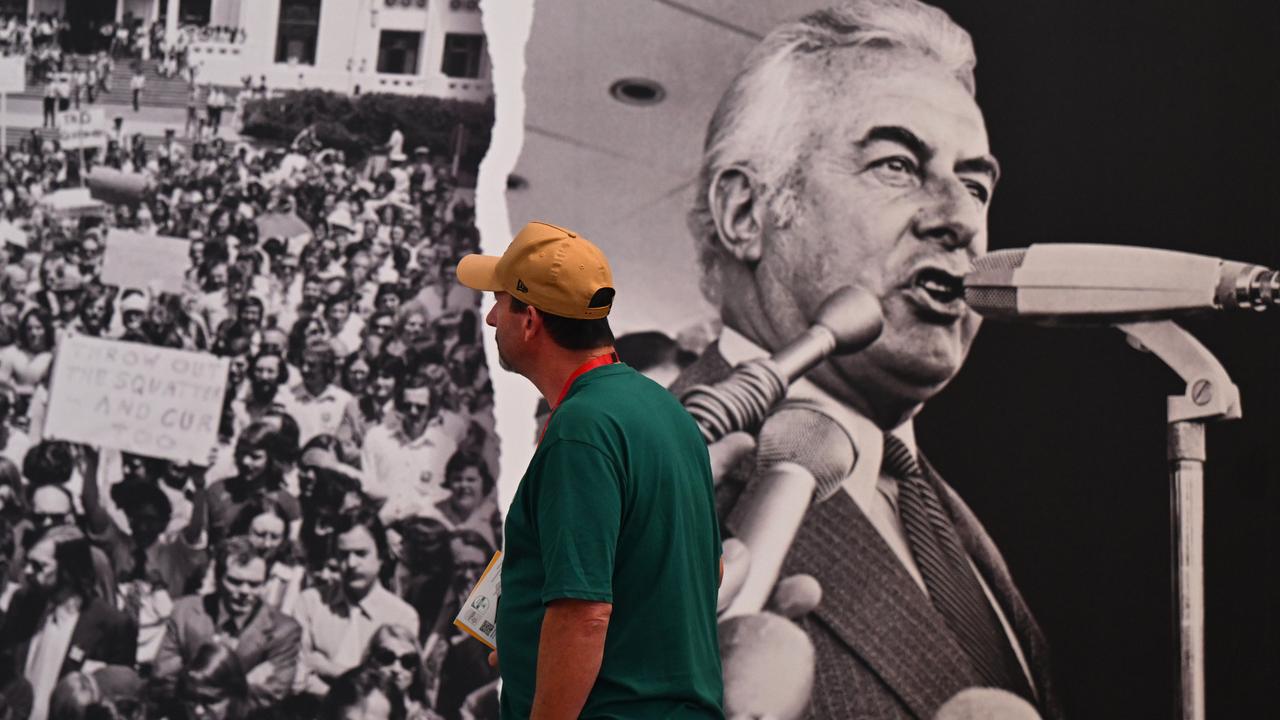
Mr Howard, who was a junior member of the Fraser opposition in the lead-up to the dismissal, said Mr Whitlam didn’t handle the politics of the saga well.
“I think he just assumed that Kerr was his man and would do his bidding, and that was a terrible mistake,” he told AAP.
“He should have worked out for himself that Kerr might exercise the reserve power and dismiss him.”
Shortly after the Whitlam government was sacked, Australians went to the polls and elected the coalition in a landslide.
“People didn’t vote according to their feelings about the dismissal,” Mr Howard said, arguing that public sentiment had turned against Mr Whitlam well before his sacking.
The former Liberal prime minister, who will be interviewed at Old Parliament House on Tuesday to relive the saga, said Labor had appeared to be in a hurry to introduce major reforms because it had been in opposition for more than two decades before returning to power.
“He was very much in a rush,” Mr Howard said.
“But you can be in a rush towards the wrong objective,” he added, claiming increased spending and a larger public service were some of the Whitlam government’s flawed plans.
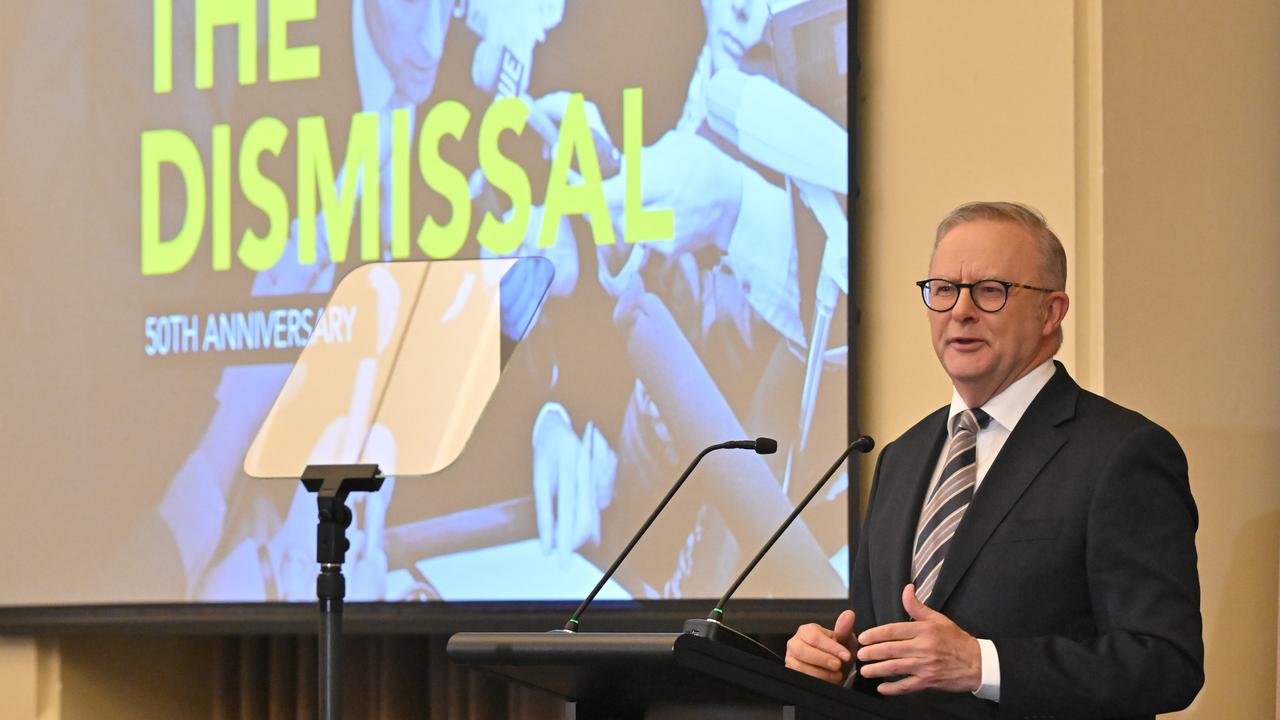
Prime Minister Anthony Albanese gave a different assessment, describing the dismissal as a brutal political play that brought down a fairly elected government.
“Make no mistake: November 11th 1975, was not a constitutional crisis, it was a partisan political ambush,” he said in a speech at Old Parliament House on Monday evening.
“There was no real precedent, and no legitimate pretext.”
Mr Albanese announced plans to erect a statue of Mr Whitlam at Old Parliament House, honouring his predecessor’s achievements as prime minister.
“Australians will be able to stand with Gough, put an arm around the great man’s shoulders, and remind ourselves that if we maintain our enthusiasm, it’s always time,” he said.

Landlords in illegal tobacco, vape store firing line
Landlords who knowingly allow illegal tobacco and vape stores to operate on their premises face prison time as a nicotine crackdown continues.
In its latest push to curb a surging underground tobacco and vape market, the NSW government will move a bill that would punish the landlords with up to one year of imprisonment or a fine of up to $165,000.
“We know that the vast majority of landlords do the right thing – but those bad actors out there not only undermine legitimate business, they also expose communities to criminal activity,” Health Minister Ryan Park said.
“This measure will further minimise the opportunities for illegal tobacco and vape sales to flourish.”
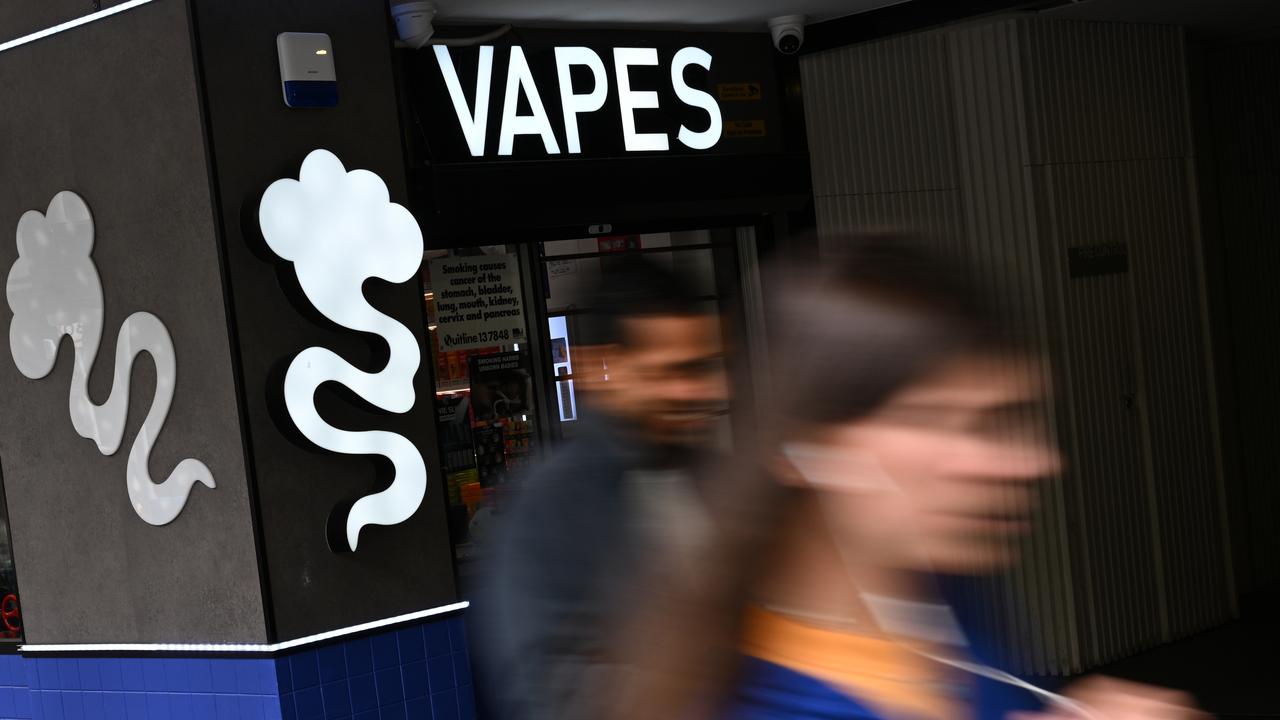
The new offence that would be created would require the landlord to know an illicit tobacco or vape store was running out of their building, but allow it to continue rather than contacting authorities.
Mr Park on Wednesday touted early returns on the crackdown as it shut two shops in Sydney’s north for 90 days for selling illicit vape and tobacco products.
These stores can be forced to close for up to 12 months under new powers if a breach is found.
Since January 1, NSW Health has seized more than 11.8 million cigarettes, more than 2000kg of illicit tobacco products and some 170,000 illegal vaping goods.
During the same period, 17 court prosecutions have been finalised regarding tobacco and vape sale offences, with total fines of almost $600,000 handed down.
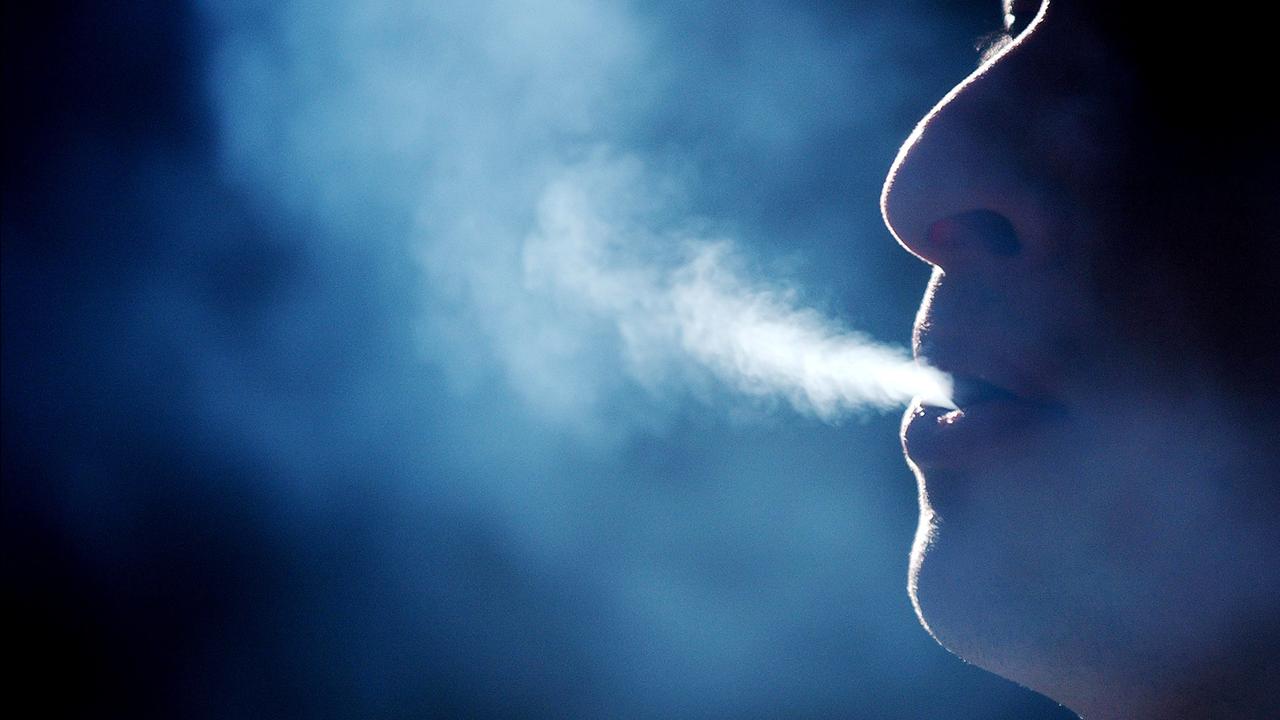
Mr Park said punishing landlords highlighted the important role they could play in stopping the flow of illegal products to the market.
“These penalties are the result of extensive consultation and will strike a fair and reasonable balance that ensures we target landlords who are knowingly permitting illegal activity,” he said.
A report released on Friday showed illegal tobacco was burning a $4 billion hole in Australia’s hip pocket.
The economic cost of organised crime to Australia jumped to $82.3 billion in 2023/24, up from $68.7 billion in the previous 12 months, reports from the Australian Criminal Intelligence Commission and Australian Institute of Criminology show.
Illicit tobacco’s estimated economic cost rose to $4 billion, a fourfold increase across the past three years.
But tobacco control policy experts argue reducing the tax on cigarettes to compete with illicit sellers won’t fix the problem.

Generations connected as millions mark Remembrance Day
Former commando Allan Miles never met his World War I veteran father who died months before his birth.
But the OAM recipient believes anyone who has signed up to the Australian Defence Force is linked to previous generations.
“They have a connection to everyone who has served before,” he told AAP.
“We go back to the young men who served in Korea and then in Malaya, they became our instructors for men like myself who served in the 60s and 70s, which was the main conflict period for Vietnam.
“You can’t not be aware of the service of those men and women … just amazing people.”

Australia will pause at 11am on Tuesday to mark the 107th anniversary of the armistice that ended fighting in World War I.
Remembrance Day is used to honour the people who have died in wars since.
The year 2025 also marks 80 years since the end of the World War II in 1945.
Ceremonies will be held at memorials throughout the country.
Mr Miles, who is the chairman of Operation Pilgrimage, an organisation of former commandos, urged younger generations to try to understand the significance of the service and sacrifice being commemorated.
Prime Minister Anthony Albanese will attend the national service at the Australian War Memorial in Canberra to pay tribute.
“We remember every young Australian denied the chance to grow old, and every Australian who came home but never fully left the battle,” he said in a statement.
“We remember every future lost and every future changed forever.
“That is the heart of the pledge we hand from one generation to the next.”
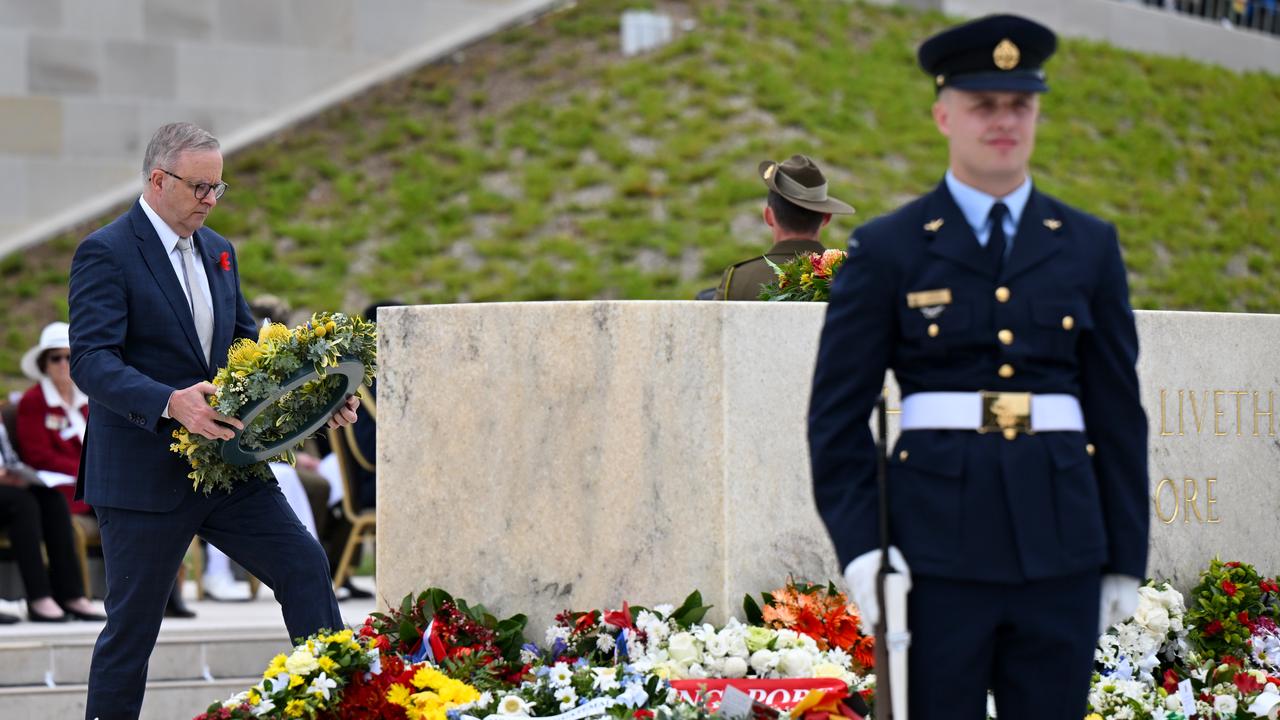
Opposition Leader Sussan Ley and opposition veterans’ affairs spokesman Darren Chester will also attend the national service at the war memorial.
In a joint statement, they encouraged Australians to visit local services or pause in silence to honour those who made the ultimate sacrifice.
“It’s a small gesture, but a deeply meaningful one,” they said.
“In that moment, we are united as a nation in gratitude and respect.
“We will remember them.”

Social media ban lacks teeth, former executive warns
Tech giants won’t bat an eyelid at the fines enforced under Australia’s social media ban but they will start sweating if other nations follow suit, a former Facebook executive says.
Children younger than 16 will be booted off Facebook, Instagram, Snapchat, TikTok, YouTube, Threads, Kick and Reddit when Australia’s world-leading ban kicks in on December 10.
The onus is on social media companies, and not parents, to take “reasonable steps” to prevent teens having accounts.
Chief executive of AI startup Omniscient, Stephen Scheeler, who led Facebook’s Australian office from 2013 to 2017, said fines of up to $50 million for systemic breaches were insufficient to encourage compliance.
He said the amount was the equivalent of a parking ticket for billion-dollar companies.
“It takes Meta about an hour and 52 minutes to make $50 million in revenue,” Mr Scheeler told AAP.
“Some of these platforms are absorbed in Europe to billions of Euros.
“They won’t bat an eyelid … this is peanuts in the scheme of things.”
The bigger concern for platforms was whether the ban would spread globally, which would add complexity for compliance and impact revenue, Mr Scheeler said.

Prime Minister Anthony Albanese was lauded by European counterparts in September when he spruiked the ban in New York, with Denmark’s government announcing an agreement to restrict social media access for under-15s last week.
“If Australia is the only country that does this, it will make no difference,” Mr Scheeler said.
“If you’re impeding the ability of people between 13 to 16 from being on a platform, my guess is probably that 15 per cent of users would be in that category … so they’re losing that amount of logged-in users.
“If that happened globally, that’s a substantial hit on revenue.”
Communications Minister Anika Wells said implementation of the reforms would take time for kids and parents to get used to.
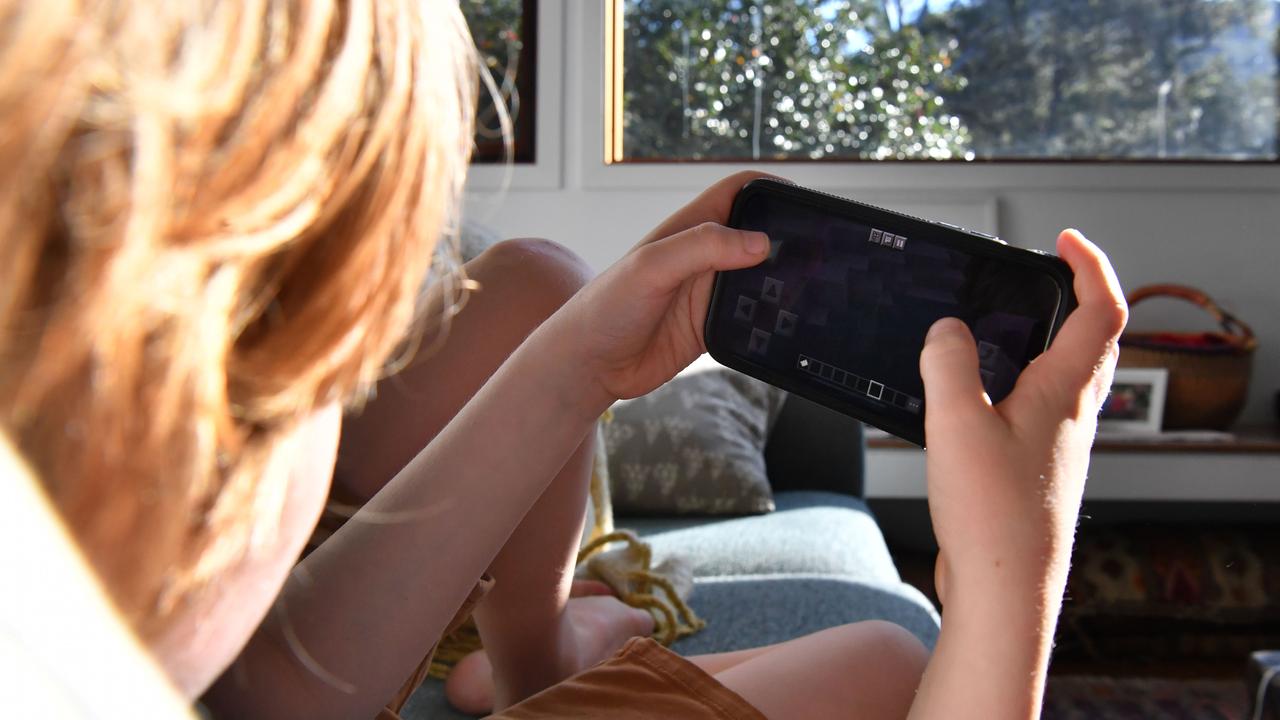
Seven out of 10 kids have experienced online harm, she said.
“We’re having a big crack at it with these laws and I don’t pretend we’re certainly going to be perfect,” Ms Wells said after meeting students at a Canberra school on Monday.
“It’s going to look a bit untidy on the way through, big reforms always do.”
More than 200,000 Australians have visited the nation’s official e-safety website since an education campaign launched three weeks ago, attracting almost 100,000 page views weekly, compared to fewer than 10,000 previously.
Mr Albanese said the social media ban, which followed lobbying from media giant News Corp, reflected a “grassroots movement that’s come from the bottom up”.
“It particularly has come from parents who have gone through tragic circumstances, lost their young son or daughter, and channelled that trauma and grief into trying to make sure that it doesn’t happen to others,” he told Nova radio.
One of the issues driving the ban was that young people did not have the capacity to distinguish between what was real and what was not before the age of 16, Mr Albanese said.
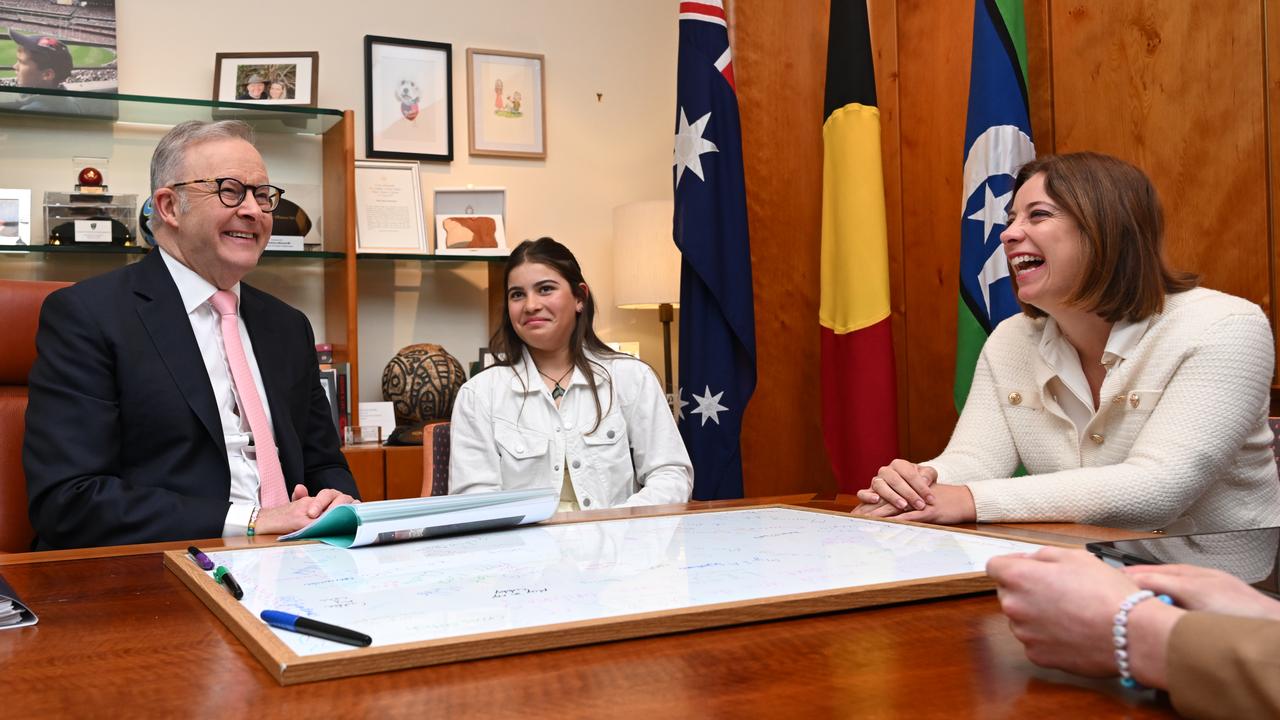
“It is just about giving them back their childhood. That is as simple as that, and we want people to be protected,” he said.
But opposition communication spokeswoman Melissa McIntosh claimed the ban was “set up to fail”, saying it was unclear on details such as whether platforms could compel users to verify their age using digital identification.
“The details really matter and the minister should be focused on those first and foremost,” she said.
Discord, Twitch and popular gaming site Roblox won’t be affected by the ban, but Ms Wells said more platforms could be added.
“If we were to detect that people were swarming (to Roblox) and there was more harm being created, absolutely Roblox would be in the sights of the eSafety commissioner,” Ms Wells said.

Insurance woes and warming oceans no fisherman’s friend
Farmers can insure their crops from storm losses but fishers have no such protection from environmental catastrophes that devastate marine life.
The seafood industry instead relies on government support following events such as the devastating algal bloom in South Australia which has rocked local fishers.
This leaves marine industries exposed and seafood supply interrupted, CSIRO Sustainable Marine Futures Program research scientist Alistair Hobday says.
“When we have fishing disasters, either the government pays or nobody does, and that makes our seafood industry vulnerable,” he told AAP.
Uncertainty and delayed payments can cripple small businesses trying to pay bills and supply food to Australians.
The fishing and aquaculture industries also face a host of worsening challenges from climate change, which fuels marine heatwaves, pest outbreaks and other harmful conditions for sea life.
“What if there was a mechanism where they were self-sustaining and self-supporting through insurance?” Dr Hobday said.
He and his colleague Rich Little have started an academic working group with overseas colleagues to explore opportunities for financial products that help reduce environmental risk for marine industries and encourage them to adapt to the global temperature rise.
Dr Little, a senior research scientist at the federal science agency, said the focus was on parametric insurance, which differed from the better-known kind triggered by observable losses such as a destroyed crop or flooded home.
Missing fish are harder to prove, so instead, insurance payouts would be triggered once certain climate-related parameters were met, such as specific ocean temperatures being exceeded.
“That’s the difference between indemnified insurance, where you get paid for your losses, versus parametric insurance, where there’s a parameter that’s supposed to represent those losses,” Dr Little said.
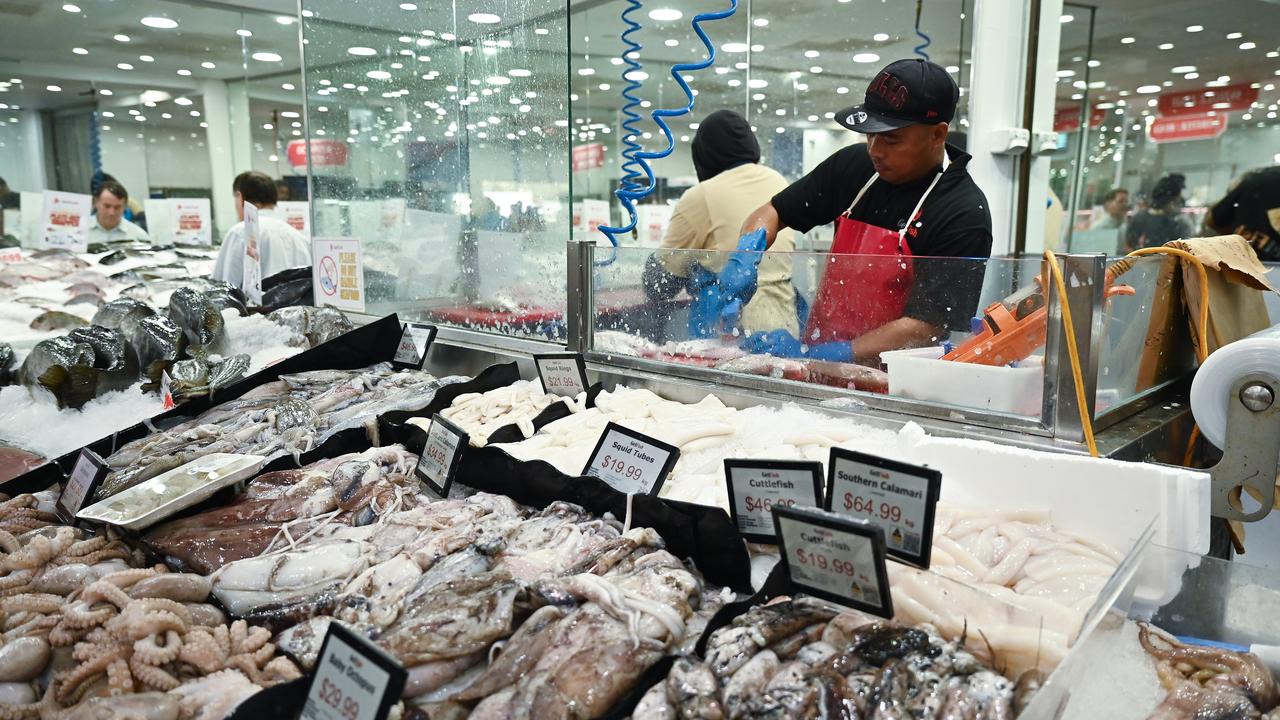
Insurance products should actively encourage adaptation to climate change rather than allow businesses to continue business as usual.
In exchange for reduced premiums, marine industries could be required to invest a small fraction of every insurance payout into adaptation and resilience, for example.
In aquaculture, that money could be invested in breeding a heat-resistant salmon, or for fishers, planting mangroves or other habitats that support fish recovery.
The duo see a “window of opportunity” for insurance, where it provides the capital needed to help marine industries adapt to rising temperatures without suffering full financial ruin.
“If every year was going to be a safe one, then a marine business would have more money to do adaptation investment with,” Dr Hobday said.
“But if two years out of 10 are unsafe, the business is always just hanging on, on the edge, just surviving.”
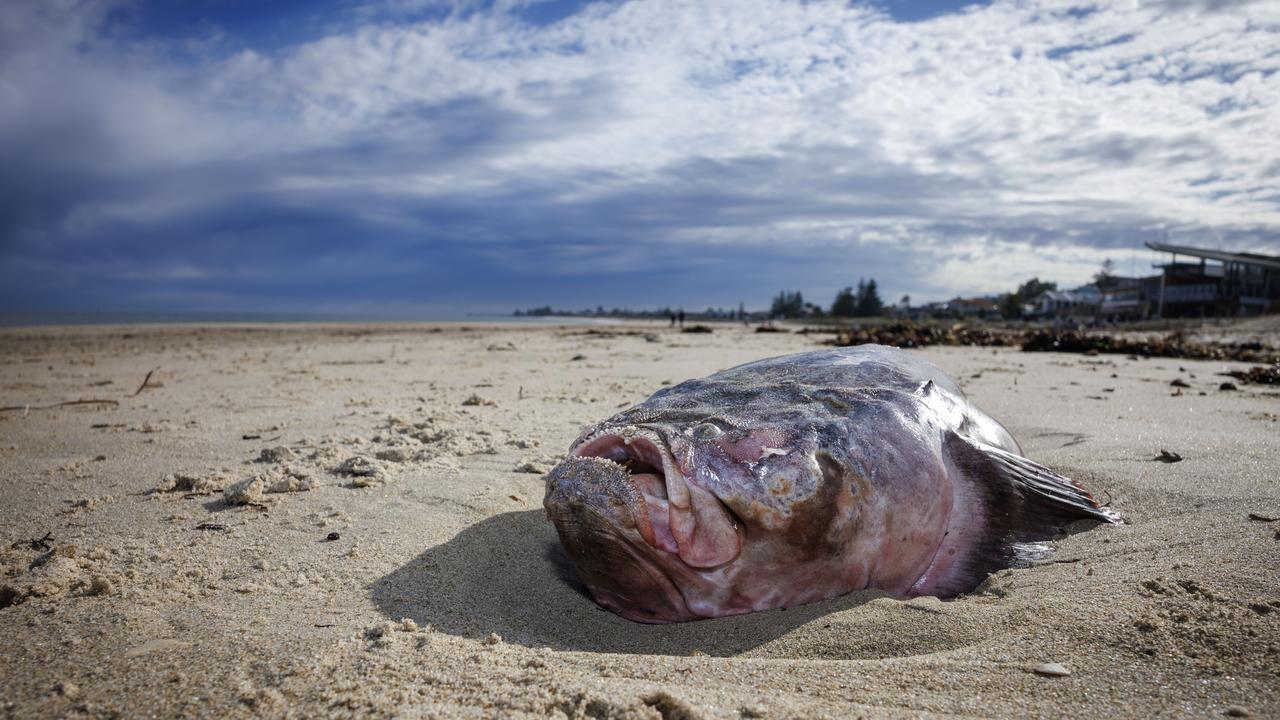
The working group’s early conversations with insurers have raised questions around profitability and affordability.
Pricing risk in a way that is appealing to both insurers and the fishers buying it is challenging, and there could be opportunities to involve philanthropic or government funds to close gaps.
A benefit of a thriving marine insurance ecosystem could be the capture of more information about the ocean.
“Insurance could provide an incentive to collect that information – get a better estimate of actually how many of each species are out there, and how they might respond to a changing climate,” Dr Little said.

Neo-Nazis threaten MPs as police defend rally response
Two female MPs have been set upon by extremists after criticising a prominent neo-Nazi rally that police concede was not the first approved gathering of the right-wing extremists.
Federal MP Allegra Spender and state MP Kellie Sloane, whose overlapping electorates in eastern Sydney include large Jewish populations, have referred to police several inflammatory threats directed towards them on Sunday.
The threats followed the MPs condemning 60 black-clad men shouting Nazi slogans and unfurling a large banner across the gates of NSW parliament on Saturday, carrying the slogan: “Abolish the Jewish Lobby.”
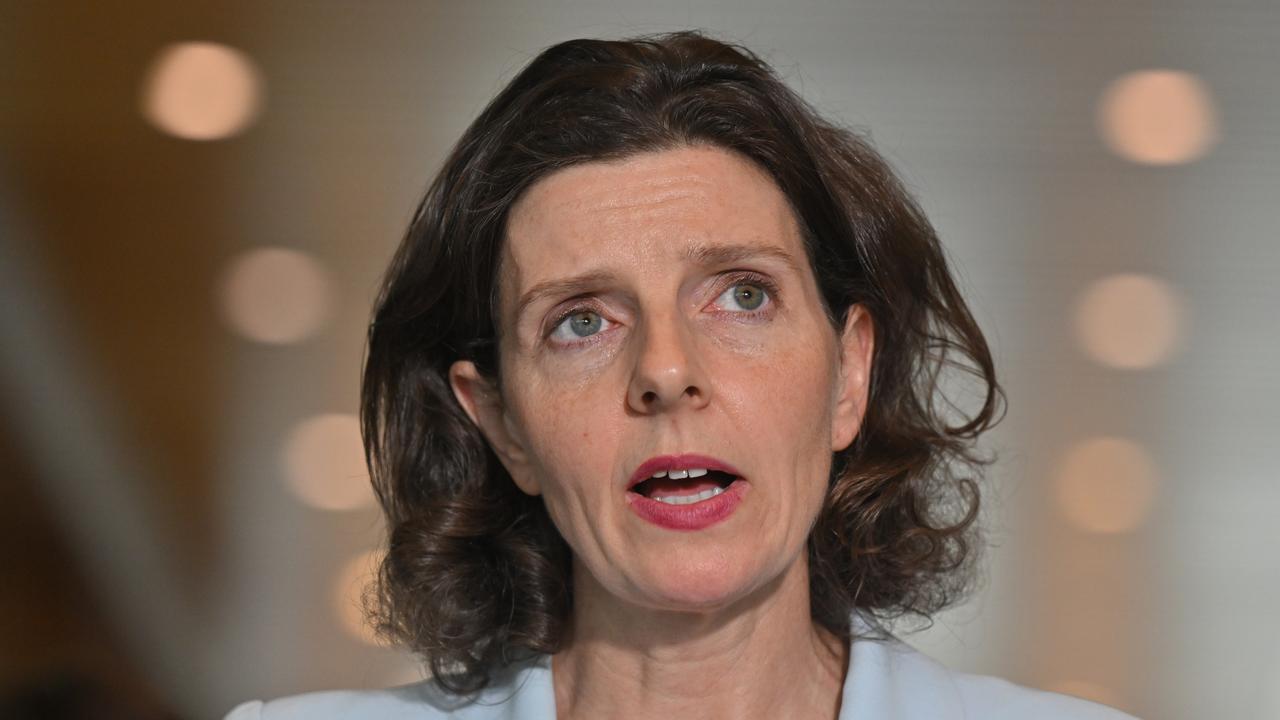
The men were linked to the National Socialist Network.
A leader of one neo-Nazi group urged his “patriots” to “rhetorically rape Allegra Spender”, triggering hundreds of messages aimed at the independent MP.
“It is pretty shocking and not something you ever want to hear, but we’ve referred it to the police,” Ms Spender told ABC radio on Monday.
“These are the real extremists out there. They’re trying to intimidate the broader mainstream community.”
She criticised police and the government for allowing the rally to go ahead.
“It’s very unclear so far from the NSW government and also the NSW police what should have happened instead of what actually did happen,” Ms Spender said.
Barely six weeks into his new job, NSW Police Commissioner Mal Lanyon vowed to get to the bottom of a command-level decision to not oppose the gathering on in central Sydney.
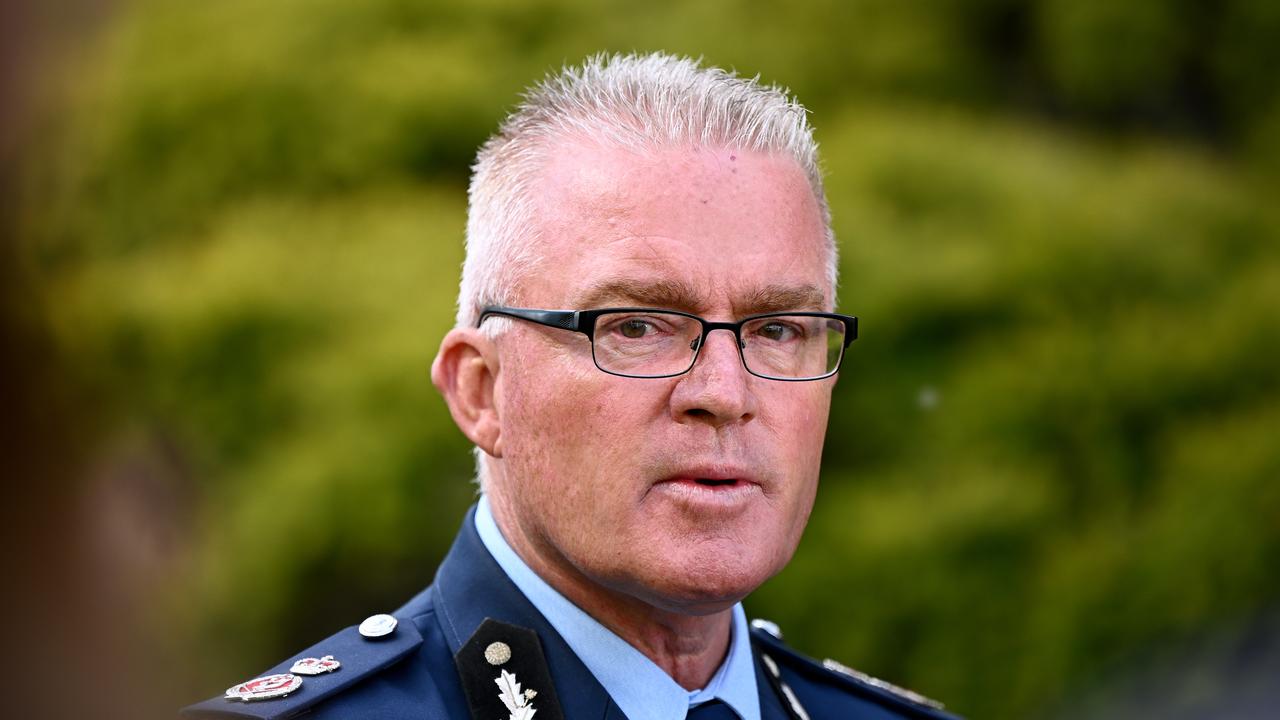
Organisers gave notice more than a week earlier and were given the green light because no public safety concerns had been flagged by police, Mr Lanyon said.
That followed the force seeking advice on legal options about how a court challenge would fare.
“This group had protested before … we’ve also had interactions with them,” Mr Lanyon said.
“There had been no issue with public safety in those particular ones.
“We sought legal advice in terms of the content of what was in the banner that was to be used and we were told that there was no reasonable prospect of prosecuting on that.”
The fringe group rallied outside parliament in June, when participants wore black uniforms and displayed a banner with the words: “End Immigration.”
Brushing off suggestions some police officers were empathetic to neo-Nazi messages, Mr Laynon said he found the group and its rhetoric odious.
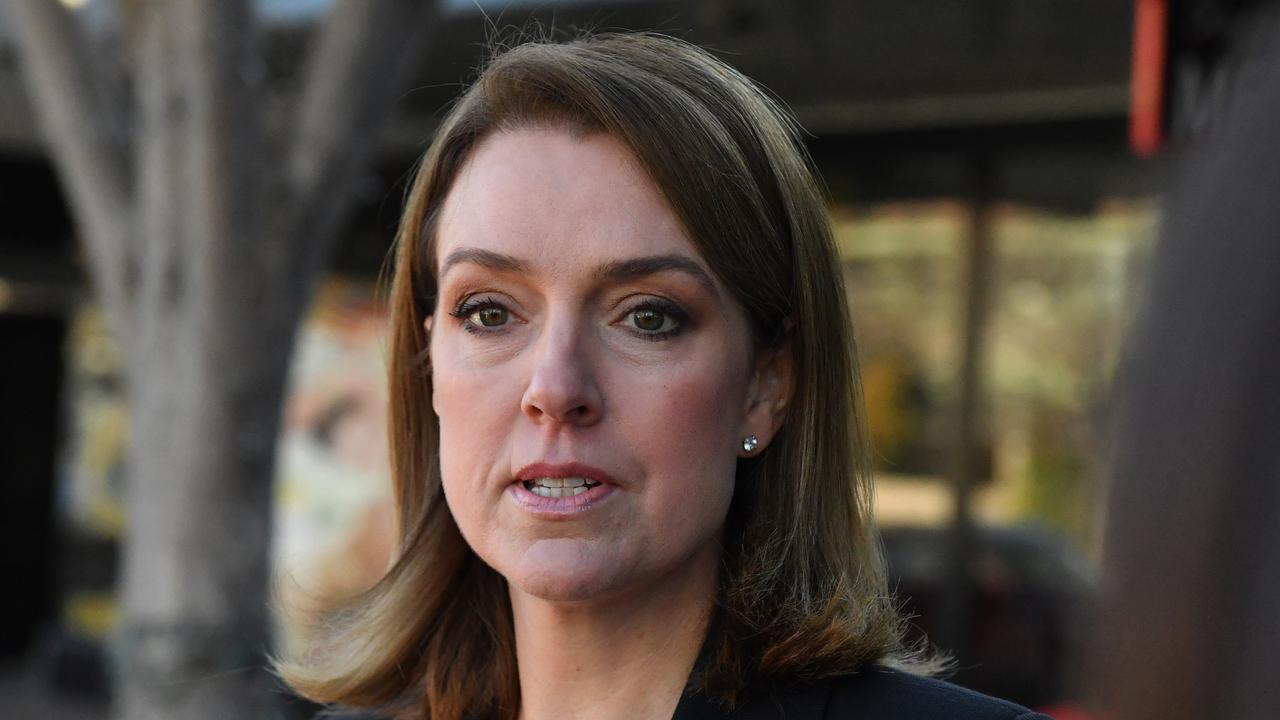
Premier Chris Minns condemned the “vile” and “bigoted” abuse towards the two eastern Sydney MPs and vowed action on the rally itself.
“I’ll be reviewing the speeches to determine whether existing hate speech laws have been breached or not,” he said.
“We can’t let this happen again.”
Mr Minns dismissed suggestions of a double standard in how police curbed protests by climate and pro-Palestine groups compared with those from neo-Nazi extremists.
Ms Sloane, whose state electorate of Vaucluse includes 15 per cent of Australia’s Jewish population, said the government’s handling of the rally was a “complete stuff-up”.
She remained defiant in the face of the violent threats that prompted her to deactivate her X account.
“I won’t be intimidated by them and I won’t stop speaking up about behaviour that is racist and offends the majority of decent people in NSW,” she said.

RBA bigwig reveals how economy can escape slow lane
Whether Australia takes the road to prosperity or stays in the slow lane depends largely on fixing productivity, according to a top Reserve Bank official.
Australia’s economy faces three possible paths forward, RBA deputy governor Andrew Hauser told a room of investors on Monday.
And which route it takes will determine how many more rate cuts mortgage holders can expect.
The central bank’s second-in-command said Australia was undergoing an unusual recovery because the economy seemed to be running hotter and unemployment remaining lower than historical trends suggested would happen after a period of high interest rates.
Because of rapid growth in demand after the COVID-19 pandemic, the Reserve Bank deliberately keeping interest rates low to preserve jobs and weak growth in supply, the economy was already growing about as fast as it could without pushing inflation up.
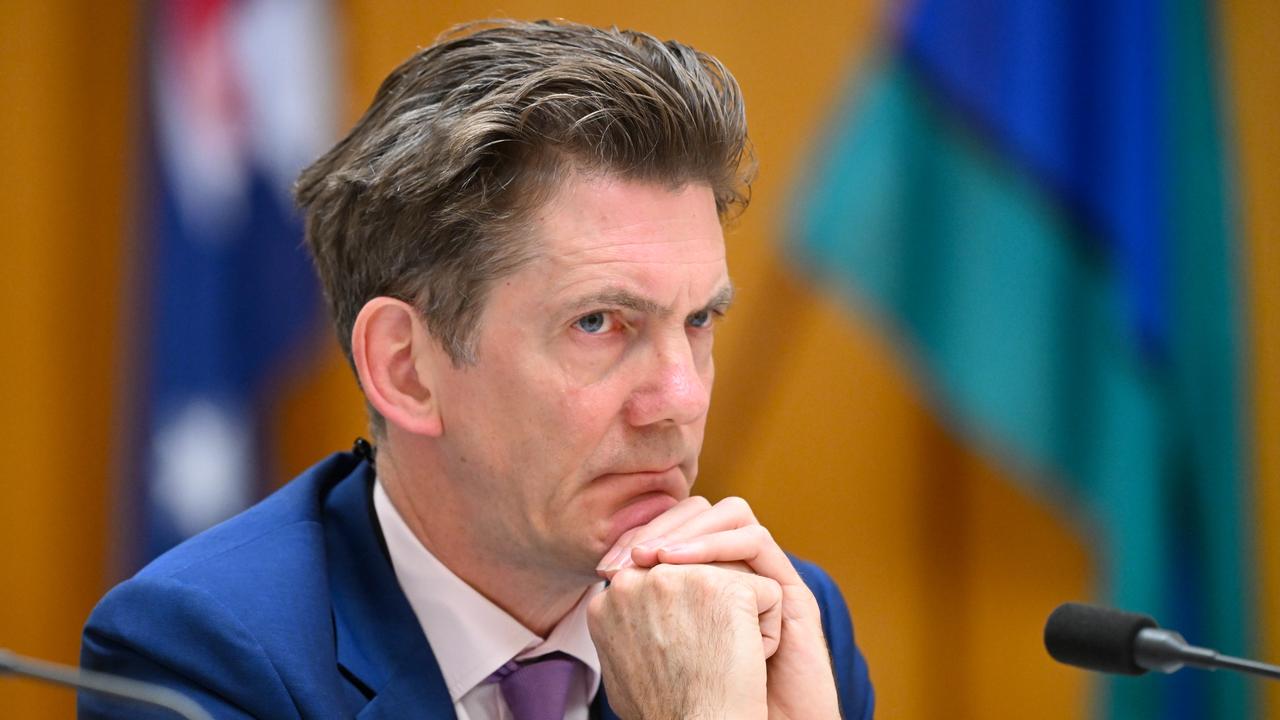
Australia had been experiencing its “tightest economic backdrop” to a recovery since at least the early 1980s, Mr Hauser said in a speech to the UBS Australasia Conference.
As a result, achieving the RBA’s goal of bringing inflation back to target over the medium term would require interest rates to stay relatively restrictive, he said.
But it remains unclear exactly how that will play out, Mr Hauser said.
One possibility is that inflationary pressures have been overstated. Perhaps the spike in inflation in the September quarter was entirely temporary, the labour market might not be as tight as feared or the global economy would turn south and activity slow.
That would give the central bank a bit more room than thought to cut rates further.
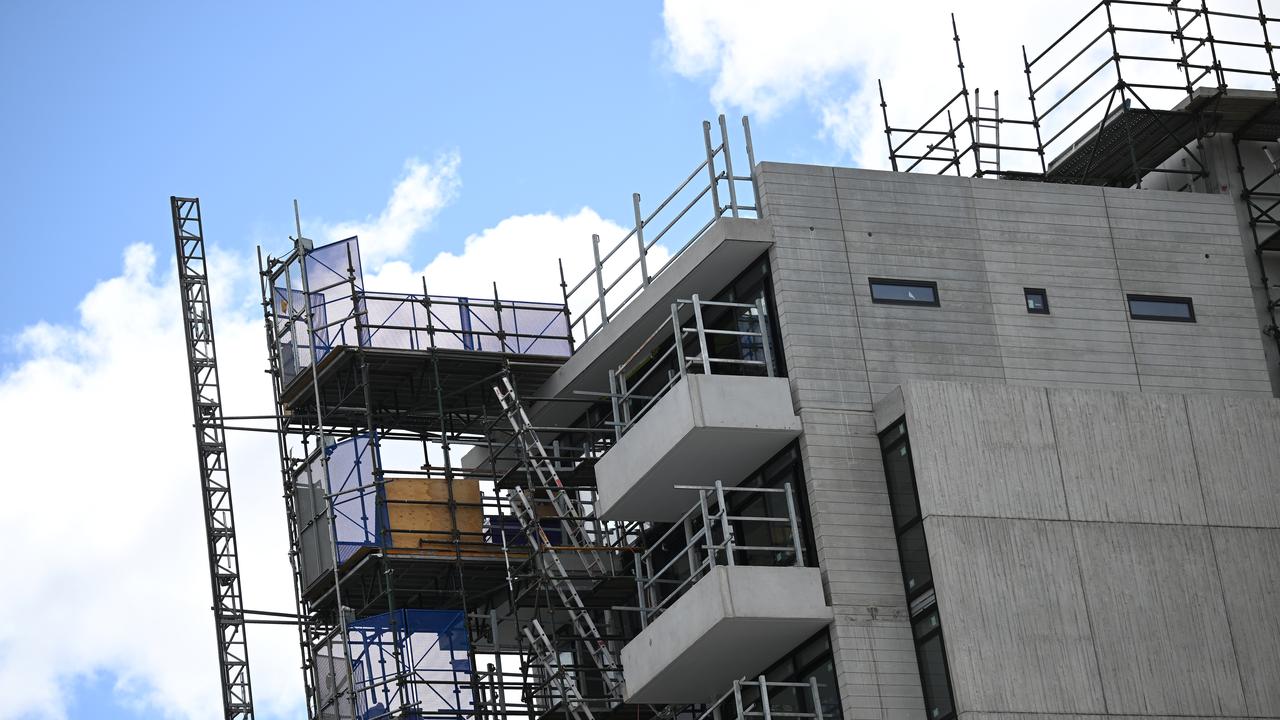
A second possibility is that the economy is “boxed in” by its capacity constraints and there’s little scope to grow without inflation remaining above target.
There’s some evidence to suggest the pick-up in inflation is more permanent – rises in construction costs and market services prices can be sticky, and financial conditions are no longer constraining activity.
Household spending might take off and global financial conditions, fuelled by the AI boom, prove resilient while strong iron ore prices continue to boost Australia’s economy.
“On that view, there may be little scope for demand growth to rise further without adding to inflationary pressures, and hence there may be little room for further policy easing,” Mr Hauser warned.
But if that view proved true, there was also a third track – an “escape route” – that Australia could choose to take.
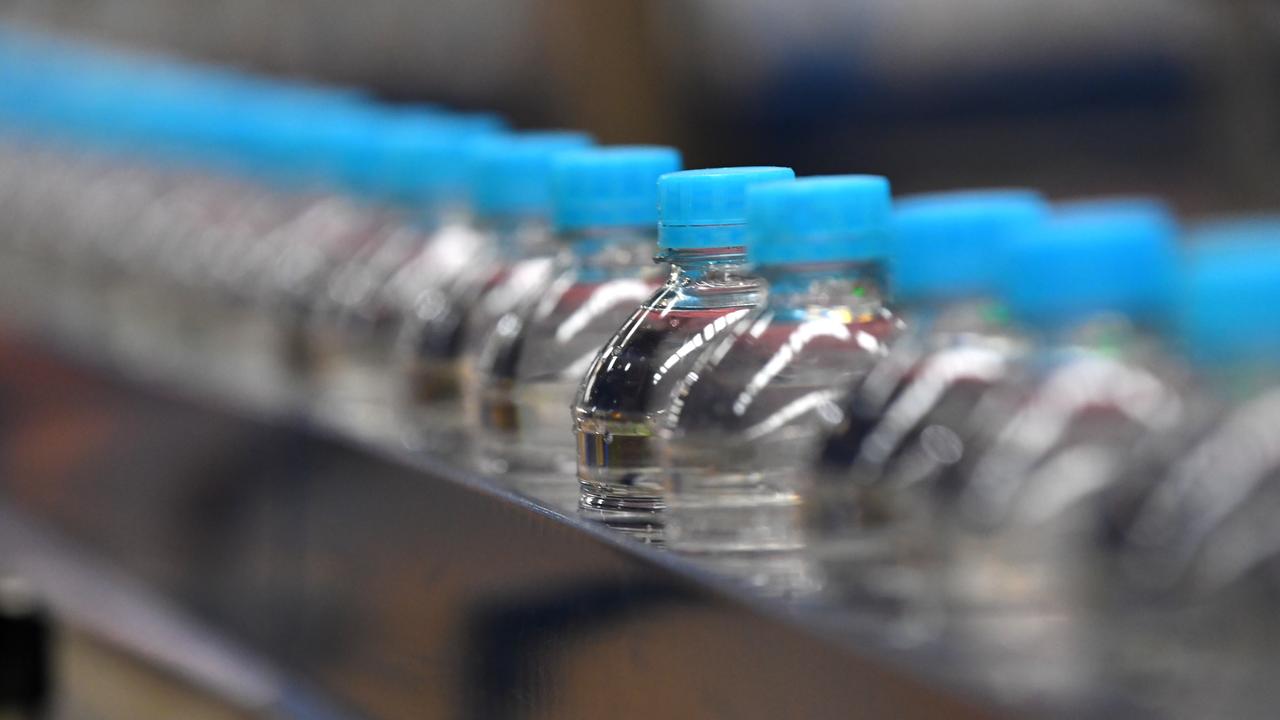
To get out of its inflationary bind, Australia must find a way to grow the nation’s economic pie by boosting productivity.
Growth in productivity is already expected to bounce back modestly from current lows but the RBA only predicts it will recover to 0.7 per cent, which is lower than its historical average.
To further grow the economy’s productive capacity Australia must revive business investment, which has been flat over the past 18 months, Mr Hauser said.
“The bigger-picture challenge for the economy over the medium term, if we are to return to the sort of growth rates we have been used to, is how to create more supply capacity,” he said.
“If we fail to do so, we may find ourselves boxed in on the rail. If we succeed, we could be off to the races.”
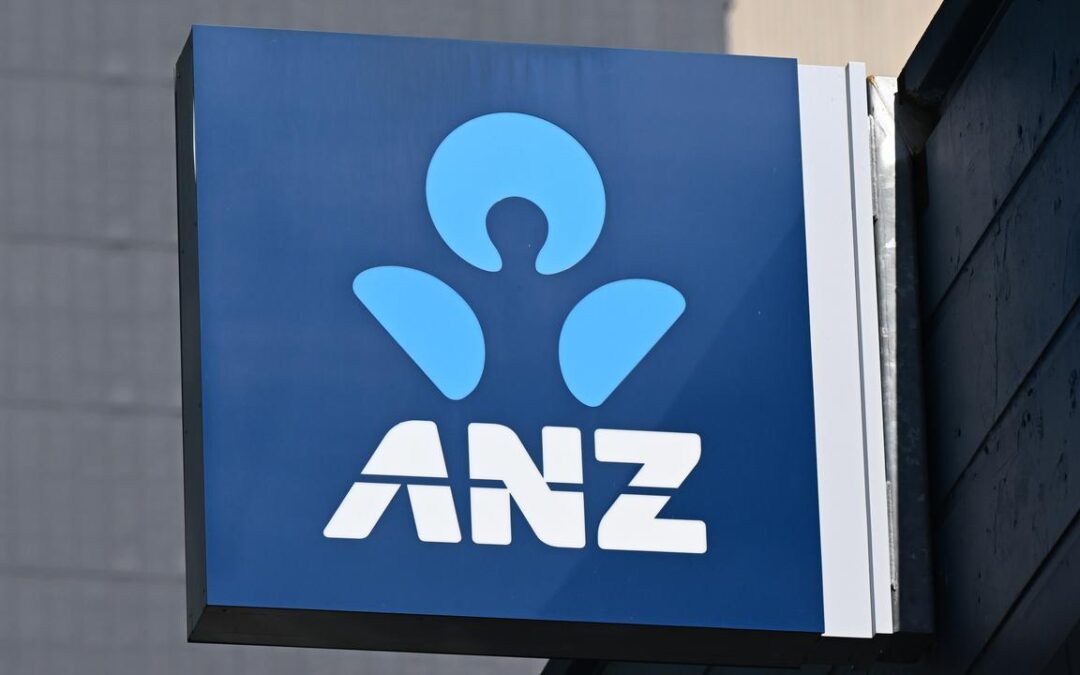
Fines and staff redundancies hurt ANZ’s bottom line
ANZ’s full-year statutory profit was down 10 per cent to $5.89 billion, the big four bank says.
The company’s bottom line for the year to September 30 was hit by $1.1 billion in significant items it had flagged recently, including a $240 million fine from the market regulator and a $414 million charge related to 3,500 staff redundancies.
Excluding those items, ANZ’s cash profit was flat at $6.89 billion.
Chief executive Nuno Matos said the bank’s performance as a business reinforced the importance of his ANZ 2030 strategy to reset the bank.
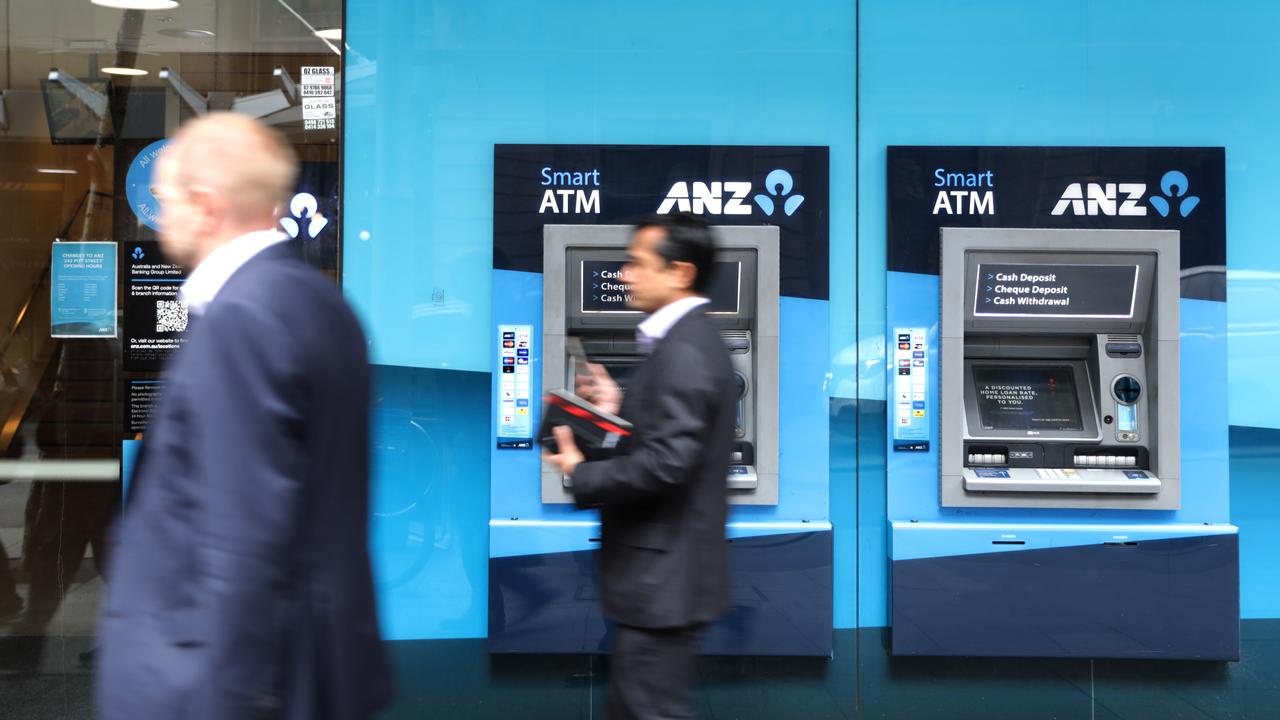
He said ANZ’s institutional and New Zealand divisions had performed consistently well, but its Australian retail and business banking divisions had underperformed.
“Despite growth in both assets and deposits, intense competition and a falling interest rate environment impacted margins,” he said.
The percentage of Australians who consider ANZ their main financial institution ticked lower during the year, falling 0.1 percentage points to 11.7 per cent.
ANZ announced a final dividend of 83 cents per share, taking its total dividends for 2024/25 to $1.66, up from $1.64 last year.
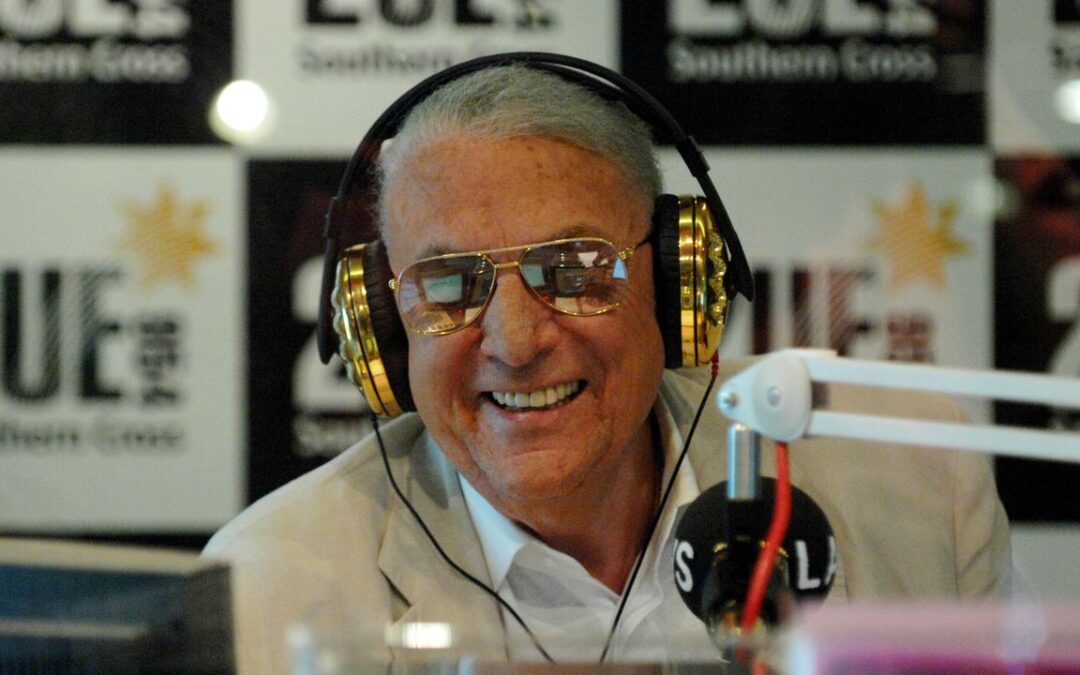
Tributes pour in for Australia’s ‘Golden Tonsils’
Tributes are flowing for Australia’s “Golden Tonsils” John Laws, an influential talkback titan who resonated across national airwaves for more than 70 years.
A towering figure on Australian radio, John Laws died peacefully at home at age 90, his family said in a statement on Sunday.
Laws, a member of the Australian Media Hall of Fame, attracted two million listeners to his morning radio program at the height of his popularity.
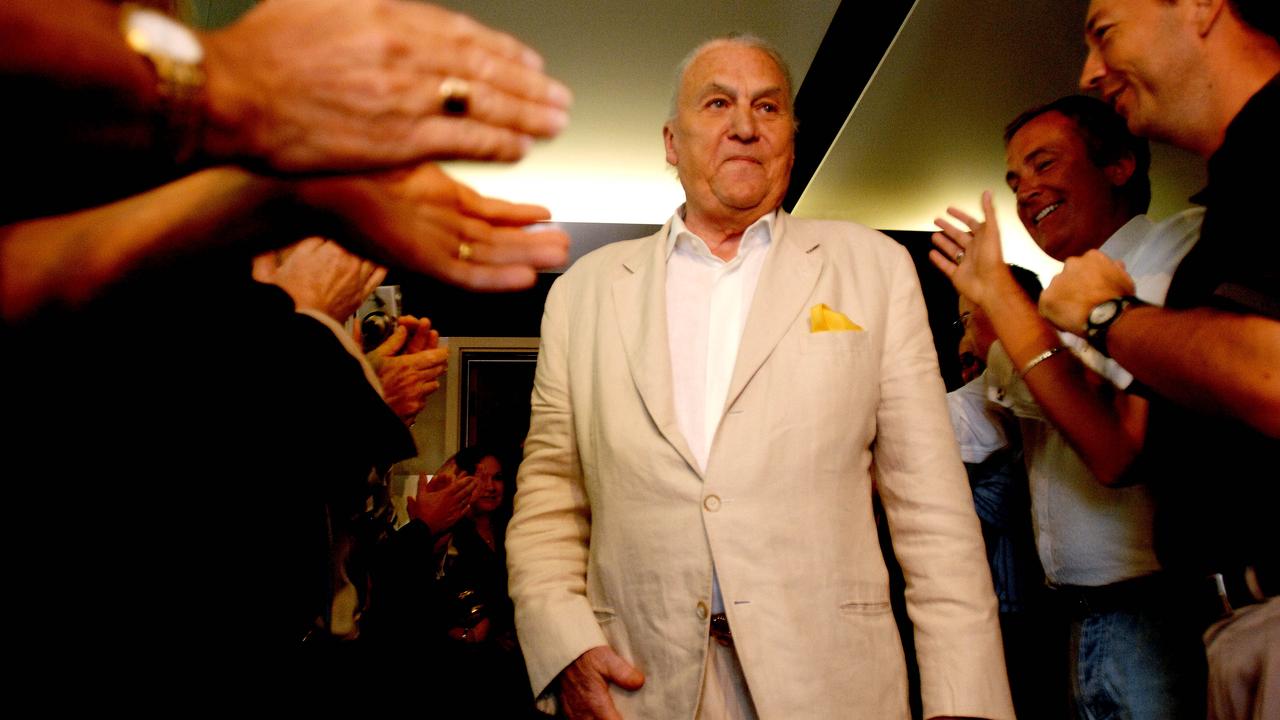
His influence was immense, with former prime minister Paul Keating once saying, “if you could convince John Laws, you could convince Australia”.
Laws’ career was extraordinary, and few broadcasters have left such a deep and lasting mark on Australian media, NSW Premier Chris Minns said.
Born in New Guinea on August 8, 1935, Laws moved to Australia with his family as a schoolboy, launching his radio career in Bendigo in 1953.
He spent four separate stints at Sydney station 2UE after first joining the broadcaster in 1957, worked for 2GB, 2UW and 2SM and had short periods with Network Ten and Foxtel.
“His legacy lies not only in the thousands of hours on air, but in the connection he forged with millions of Australians. Vale John Laws,” Mr Minns said in a statement.
Former colleagues and friends have paid tribute to the man whose distinctive tone earned him the affectionate title “Golden Tonsils”, who died one year after hanging up his microphone.
Actor Russell Crowe, who was Laws’ neighbour for more than two decades, said he was a wise mentor, a mischievous mate and a very good friend.
“I am deeply saddened by his passing, however, I am buoyed in the sure and certain knowledge that he led a magnificent life of achievement and adventure and he lived every moment,” he said on social media.
“He worked hard, played harder and loved completely. A legend, in the very best, most Australian, sense of the word. I loved him and I’ll never forget him. Vale John Laws.”
Laws pioneered a unique blend of entertainment, information and opinion, delivered with what became one of the most recognised voices in the country.
His shows were widely broadcast around Australia, reaching people through almost 100 stations, and he was particularly popular in rural NSW.
Laws was said to be the best-paid radio broadcaster in the world at one stage of his career, with 2UE management presenting him with a golden microphone.
Sydney radio broadcaster Ray Hadley described Laws as a “radio icon”.
“Those who follow him and drink from the well like I have in the past should remember the person who dug that well,” Mr Hadley said.
“And that well was dug by the great John laws, a true pioneer of Australian talkback radio.”
While fellow radio host Kyle Sandilands said Laws was “one of the true originals”.
“You could never mistake him for anyone else,” he said.
“He said what he thought, didn’t care who he offended, but could also show deep compassion when required.”
Prime Minister Anthony Albanese said Laws was an iconic voice “and so much more”.
“Generations of Australians trusted and respected him for telling it straight, digging deep and giving his guests and his listeners a chance to be heard,” Mr Albanese said on social media.

Forests, finance, fossils: climate talks hit full steam
Tens of thousands of delegates have descended on a small town in Brazil for annual climate change talks, where adaptation, forests, finance and fossil fuels are set to dominate.
Formal negotiations will kick off on Monday following a meeting of heads of state last week in Belem, the gateway to the Amazon rainforest.
Australian Climate and Energy Minister Chris Bowen is due to attend the two-week Conference of the Parties summit, where last-minute lobbying for the rights to host the next round of United Nations climate talks will be a priority.
The Australia-Pacific co-bid has stalled as a competing bid from Turkey remains in play, with no location set and just 12 months to prepare.
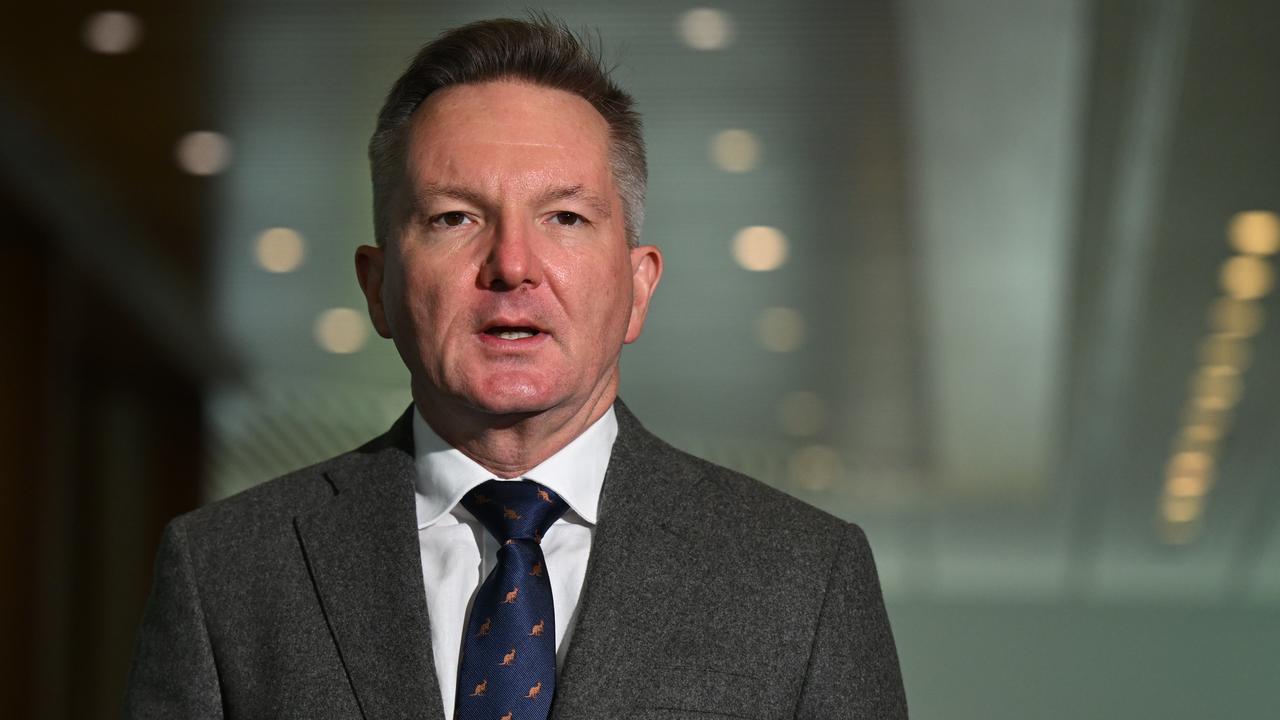
Australia has been gunning to host the 2026 conference to attract international investment in clean industries and strengthen its relationship with strategically important Pacific neighbours.
The annual talks take place at a strained time for global co-operation on responding to the challenges of temperature rise.
The US government has been actively pulling back and so far, Europe has not stepped in to fill the void as assertively as it has during other periods of faltering climate ambition.
And while pollution-slashing promises have the world tracking towards less warming than the troubling trajectory that first spurred Paris into existence a decade ago, the pact’s stated goals of keeping temperature rise below 2C, ideally 1.5C, are still off track.
The gap between emission reduction commitments and temperature limits is expected to dominate the event, as well as discussions on adaptation, climate finance and phasing down fossil fuels.
Carbon-absorbing forests will also be given prominence thanks to the symbolic location in the Amazon rainforests, known as the “lungs of the world”.